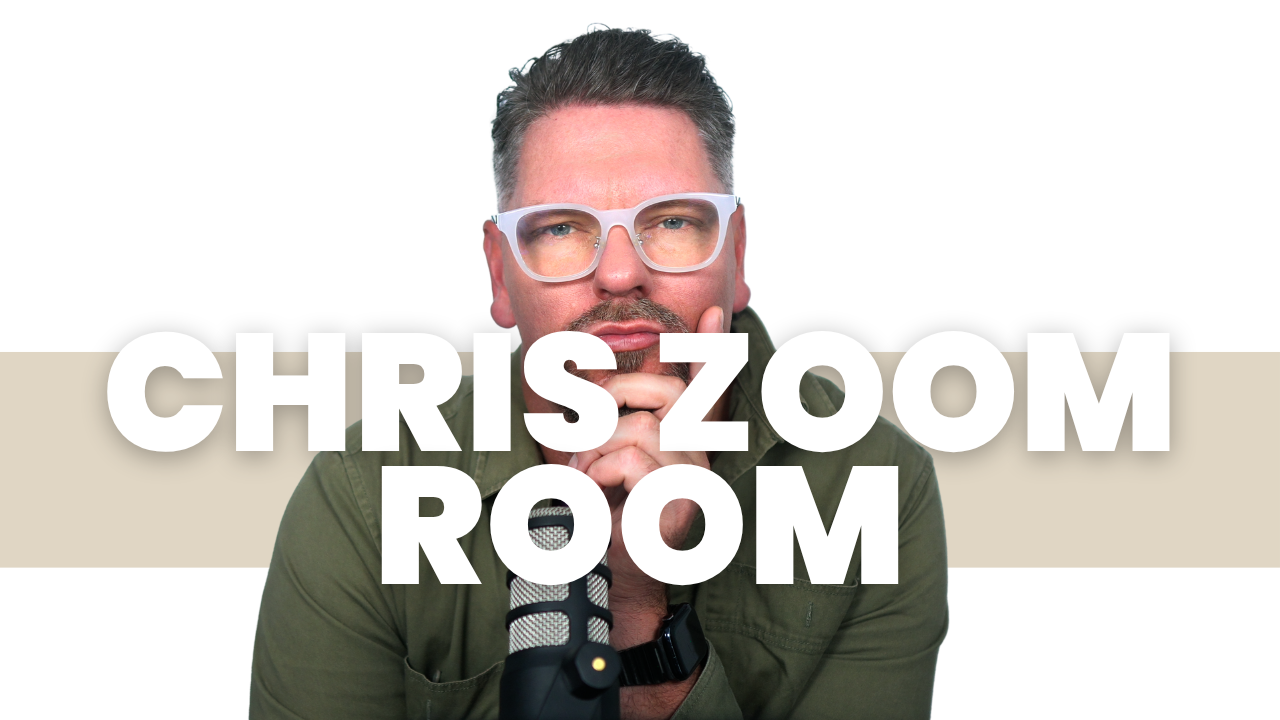5 Easy Things To Do At Night To Wake Up Happier
Aug 24, 2022Mama bear, do you become an angry bear (or what I call The Dragon Mum) when you don’t get a good night’s sleep?
I know I do! (Just ask Chris and the kids - haha!). I believe it was the ‘last straw’ that led to my health falling apart after having kids. All. Those. Sleepless. Disrupted. Nights. Can really screw up your system.
Crazy thing is, many mums continue to struggle to sleep, even after the kids are sleeping the night through. Or if you do sleep, it’s not very restorative, because you wake up feeling like you’ve been hit by a truck.
Why Can’t I Sleep? Body System Imbalances
Why is this? There are some key body systems that can burnout, breakdown, or become imbalanced, that can lead to sleep issues. The top four I always think about are:
- Adrenals - When your stress hormones cortisol and DHEA are imbalanced, they can directly impact your production of melatonin (your sleepy hormone) at night, because excess cortisol will suppress melatonin. Adrenal fatigue can also affect your mineral balance, which can cause you to go to the toilet multiple times at night.
- Brain - If serotonin levels, a brain chemical, are depleted, it can compromise your sleep. Serotonin is especially helpful for deep sleep and a balanced mood throughout the day.
- Sex Hormones - PMS or peri-menopause got you feeling hot and sweaty at night? Sleep can absolutely be disrupted if your progesterone and/or oestrogen levels are out of whack.
- Detox Pathways - Are you waking up between 2-4am and struggling to fall back to sleep? Your liver works hardest at night during these times. Often people with detox issues will have disrupted sleep, and can also experience intense dreams and nightmares.
To discover where your imbalances lie, don’t rely on Dr. Google (or even this blog post!) - test, Mama, test. You can start the lab testing process here.
Why Can’t I Sleep? Mind Imbalances
But sleep issues often go far deeper than ‘just’ body system imbalances. Almost always there are mental-emotional imbalances impacting our sleep, especially for all you juggling, high-achieving mums, carrying a lot on your plate.
Many struggle to fall asleep (or wake up, and can’t get back to sleep) because of the good old ‘racing mind’ that just won’t switch off. Going through all your to-do’s, worrying about things you did or said earlier that day, worrying about the past, the future, or trying to problem-solve. Like, how annoying is it that your brain PINGS ON when you desperately want to fall asleep?
I usually sleep great. Unless, that is, I have something big going on in my life (you can read about my insomniac experience during COVID lockdowns here). Initially I tried to ‘manage’ it with lots of magnesium and breathwork. But the results were only short-term. Because next time I had a stressful event occur, the insomnia would come back! After doing some deep inner mindwork with my brilliant life coach, we worked out that my random bouts of insomnia actually weren’t due to ‘stress’, but due to self-sabotage! My subconscious state was literally self-sabotaging my attempts to sleep, so that I didn’t have to show up fully as myself for the big/important event - things like moving house, getting judged at national awards, pivoting our business in lockdown, etc. If I was tired, crabby, and achy, then I would have a great excuse if I ‘failed’ at the event. I could blame it on lack of sleep, rather than expose my deep, dark subconscious belief/fear that I was weak and incapable. My subconscious state was literally protecting myself from exposing my deepest fear that I was inherently weak and incapable, by taking away sleep. What the?!
What might your dysfunctional sleep patterns be saying about your inner landscape?
5 Easy Things To Do At Night To Wake Up Happier
Now getting to the root of body and mind imbalances that are affecting your sleep can take time, and if you’d like to dive into this process, you can take the first step here. But in the meantime, I’d love to leave you with 6 sleep happy tips you could try, to help settle your system:
- 10min of sunlight when you first wake up (ok, this is actually a morning ritual, lol!) - Eating breakfast outside or doing some morning breath-work in the sun (or in a well-lit spot in your home) will help you to secrete cortisol in the morning. This not only helps you to feel perky, energised and happier in the morning, but it will also support proper melatonin (sleepy hormone) production at night. To really harness the power of light, check out our 3-Day Sleep Detox.
- Turn screens off 2 hours before bed - Staying on brightly lit screens (TV, computer, smart phone) after the sun goes down really interferes with your melatonin (sleepy hormone) production. Blue light will suppress melatonin, and instead will jack up cortisol (stress hormone). This can affect your ability to fall asleep, and the quality of your sleep, leaving you feeling flat, groggy, fatigued and crabby in the morning.
- Go to sleep at the same time, wake up at the same time - your body loves a regular sleep/wake routine. If you go to bed at the same time every night, and wake at the same time, you will reset your natural sleep/wake cycle, which will lead to more restorative sleep and a happier mood in the morning.
- Avoid stimulants before bed - caffeine, alcohol, sugar, can play havoc with your blood sugar levels, and also sets up cortisol production, which suppresses melatonin production. Stay away from stimulants at least at night, but I’d say avoiding from 2pm onwards can really help create restorative sleep and a happier mood in the morning. And if you’re extremely sensitive to stimulants, in particular caffeine, you might want to ditch it altogether.
- Hot epsom salt bath before bed - chuck in 1kg of epsom salts into a hot bath and sprinkle some lavender essential oil into the water, and this can really help improve your sleep and brain health. Your body and brain crave magnesium - the mineral in epsom salts. Many people are deficient in magnesium, which can cause sleep and mood issues. Getting a nightly dose of magnesium via a relaxing epsom salt bath will not only improve the quality of your sleep, but also your brain function.
Filipa Bellette is Co-Founder of Chris & Filly Functional Medicine. She is an accredited Clinical Nutritionist & Functional Medicine Practitioner. She is also a Ph.D. thought-leader, award-winning writer, and regularly published as a guest blogger & in the media. Together with her husband Chris Bellette, Filipa has worked with over 2,000+ busy, burnout clients in the last 10+ years, and specialises in producing healthy, balanced, and happy Mums & Dads...or as she calls it, a Power Parent! Filipa’s own passion for producing high-performance Power Parents came from her own personal experience of Mummy Burnout, after having babies and juggling the demands of business, family, and her failing health.
Stay connected with news and updates!
Join our mailing list to receive the latest news and updates from our team.
Don't worry, your information will not be shared.
We hate SPAM. We will never sell your information, for any reason.



